Watch: Hedd Wyn – a Welsh wartime masterpiece and lesson for the ages
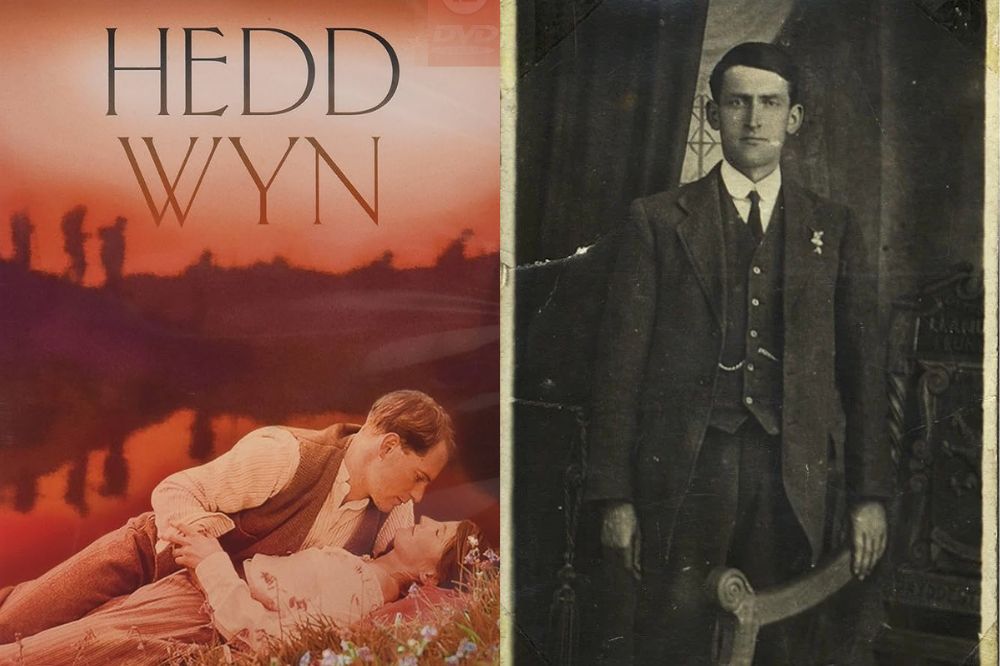
Stephen Price
Hedd Wyn is considered one of the most important Welsh language films ever made thanks to its moving portrayal of human loss and the horrors of war – and has now been made available to stream for free online with English subtitles.
Across Wales today, many of us will be attending Remembrance day services, or bringing to mind our own loved ones who might have served in the armed forces, those countless names of the fallen on our monuments, as well as the innocent casualties of war – man, woman, child and animal.
Many of us will also bring to mind the ongoing wars carried out in the world today. ‘Lest we forget’.
One name synonymous with one World War I here in Wales is that of Ellis Humphrey Evans, better known under his bardic name of Hedd Wyn.
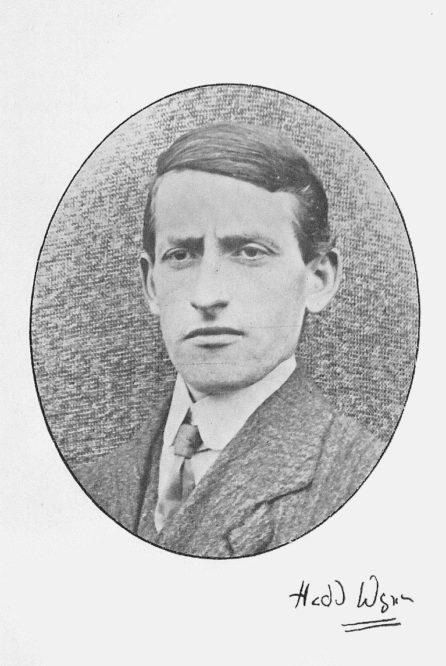
Hedd Wyn (born Ellis Humphrey Evans, 13 January 1887 – 31 July 1917) was a Welsh-language poet who was killed on the first day of the Battle of Passchendaele during World War I.
He was posthumously awarded the bard’s chair at the 1917 National Eisteddfod.
Elements of his life were put to the screen in Hedd Wyn – a 1992 Welsh anti-war biopic, written by Alan Llwyd and directed by Paul Turner.
Hedd Wyn won the Royal Television Society’s Award for Best Single Drama and BAFTA Cymru Awards in several categories; and was the first Welsh language film nominated for an Academy Award.
Hedd Wyn
The monumental film of Ellis Humphrey Evans’ tragic journey to war stars Huw Garmon, who masterfully portrays the Welsh poet.
The cinematography, which is as powerful today as ever, starkly contrasts the lyrical beauty of the poet’s native Meirionnydd with the bombed-out horrors of Passchendaele.
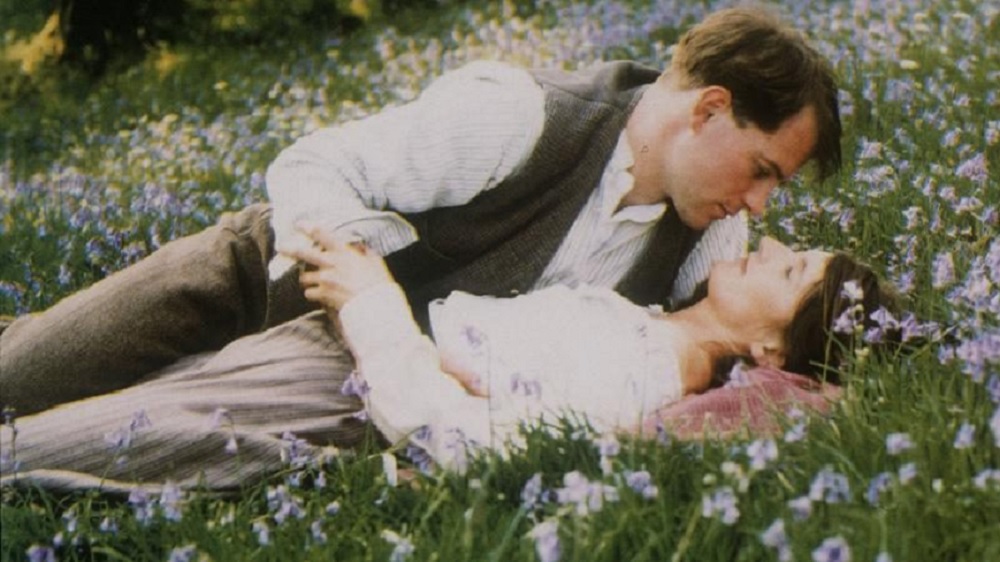
The film’s title comes from Ellis Evans’ bardic name (meaning ‘blessed peace’), under which he was posthumously awarded the Bardic Chair at the 1917 National Eisteddfod.
As a farmer’s son in the village of Trawsfynydd, Ellis Humphrey Evans composes poetry for local eisteddfodau, dreaming of being crowned Chief Bard at the National Eisteddfod.
When, in August 1914, Britain declares war on Germany, several young men from Trawsfynydd join the British Army, including Ellis’ friend Griff.
Despite mounting pressure, Ellis refuses to enlist and says that he does not think he can kill anyone.
Not long afterwards, an official of the draft board arrives at the family farm and takes down the names of Ellis and his brother Bob, despite the resistance of Ellis’ mother.
As a result, the board informs the Evans family that one of their sons must enlist in the British Army.
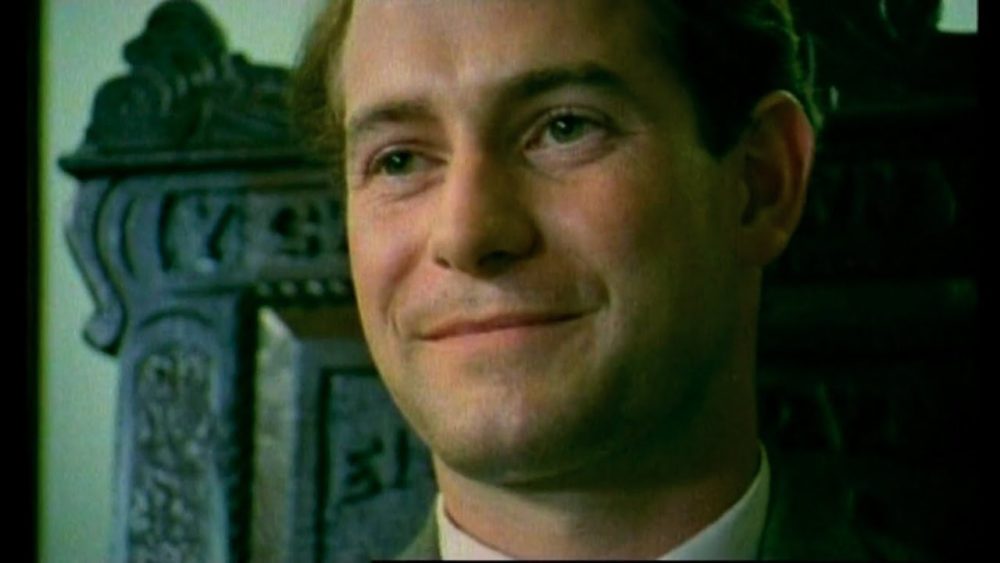
Although 17-year-old Bob longs to enlist instead, Ellis refuses to permit this. Ellis says he could never live with himself if Bob were injured or killed, so departs to join the Royal Welch Fusiliers in Liverpool.
After training, he is sent to the front line in France.
Facing what may be his last chance to win the Eisteddfod, Ellis pleads with his platoon commander to send his awdl (a long poem written in a strict meter using cynghanedd – a complex system of rhyme, alliteration and stress that’s used to create harmony in Welsh verse), Yr Arwr (The Hero) via the Army Postal Service.
In one of the film’s most powerful scenes, the 38th Welsh Division, in which Evan serves, are told of their ‘honour to be in the front line at what will be the big battle of the war’. The Welshmen effectively sent to their deaths as fodder.
On 31 July 1917, the Fusiliers go over the top and into the Battle of Passchendaele.
Ellis witnesses his fellow soldiers being shot and blown to pieces around him before he is wounded by shrapnel and crumples to the ground.
After hours lying in no man’s land, Ellis is evacuated to an aid post, where he succumbs to his injuries.
His parents are devastated when they receive a telegram informing them of his death.
Soon after, the Evans family receives another telegram which announces that Ellis’ submission has won the National Eisteddfod and the chair which Ellis has dreamed of all his life is delivered to his parents’ farmhouse, robed in black.
Masterpiece
The word masterpiece is thrown around very loosely these days, but the Academy Award winning film, Hedd Wyn, is truly deserving of that crown.
Hedd Wyn has been cited by Kate Woodward of Aberystwyth University as one of “a number of films produced for S4C which … scrutinised the trinity of dynamic tensions that existed between Wales, England and ‘Britain'”.
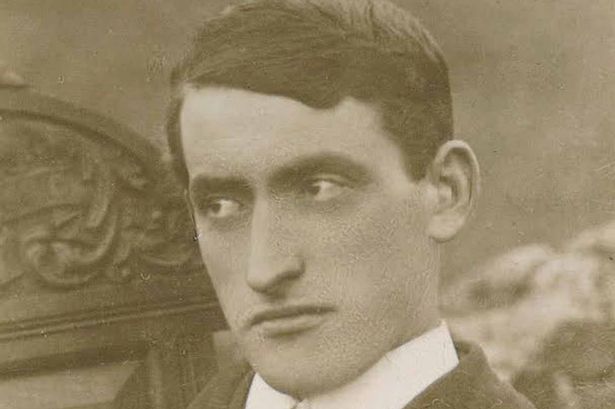
It is described as “expressing the feelings of Welsh men who are fighting the British cause in wartime, despite their being at odds with aspects of the conflict and the priorities of a Westminster government….
“In the film, the war-mongering attitude is synonymous with England and Englishness, and the Welsh and English languages are persistently juxtaposed….[T]he Welsh language is a site of struggle, but by exploring its difference with the English language, it is also a means of defining and strengthening one’s identity”.
Hedd Wyn was the first British film to be nominated for Best Foreign Language Film, in 1993, at the U.S.-based Academy of Motion Picture Arts and Sciences Academy Awards.
Its nomination as a film from the United Kingdom – as opposed to Wales – caused controversy. Hedd Wyn’s awards include the Royal Television Society’s Award for Best Single Drama (1992), Celtic Film Festival’s Spirit of the Festival Award (1993), First Prize at the Belgium Film Festival (1994) and a section award at the Karlovy Vary International Film Festival (1994)
Hanes/History
Hedd Wyn was a Christian pacifist and did not enlist for the war initially, feeling he could never kill anyone.
The war left Welsh non-conformists deeply divided. Traditionally, Nonconformists had not been comfortable with the idea of warfare which led to a clash between those who backed military action and those who adopted a pacifist stance on religious grounds.
The war inspired Hedd Wyn’s work and produced some of his most noted poetry, including Plant Trawsfynydd (“Children of Trawsfynydd”), Y Blotyn Du (“The Black Dot”), and Nid â’n Ango (“[It] Will Not Be Forgotten”).
His poem, Rhyfel (“War”), remains one of his most frequently quoted works.
|
Gwae fi fy myw mewn oes mor ddreng, Pan deimlodd fyned ymaith Dduw Mae’r hen delynau genid gynt, |
Why must I live in this grim age, Man raised his sword, once God had gone, The harps to which we sang are hung, |
On 6 September 1917, the ceremony of Chairing of the Bard took place at the National Eisteddfod in Birkenhead Park, England; in attendance was the Welsh-speaking British Prime Minister, David Lloyd George.
After the adjudicators announced that the entry submitted under the pseudonym Fleur de Lys was the winner, the trumpets were sounded for the author to identify themselves.
After three such summons, Archdruid Dyfed solemnly announced that the winner had been killed in action six weeks earlier.
The empty chair was then draped in a black sheet.
It was delivered to Evans’ parents in the same condition, “the festival in tears and the poet in his grave”, as Archdruid Dyfed said.
The festival is now referred to as “Eisteddfod y Gadair Ddu” (“The Eisteddfod of the Black Chair”).
Evans’s bardic chair is on permanent display at his family’s hill farm, Yr Ysgwrn.
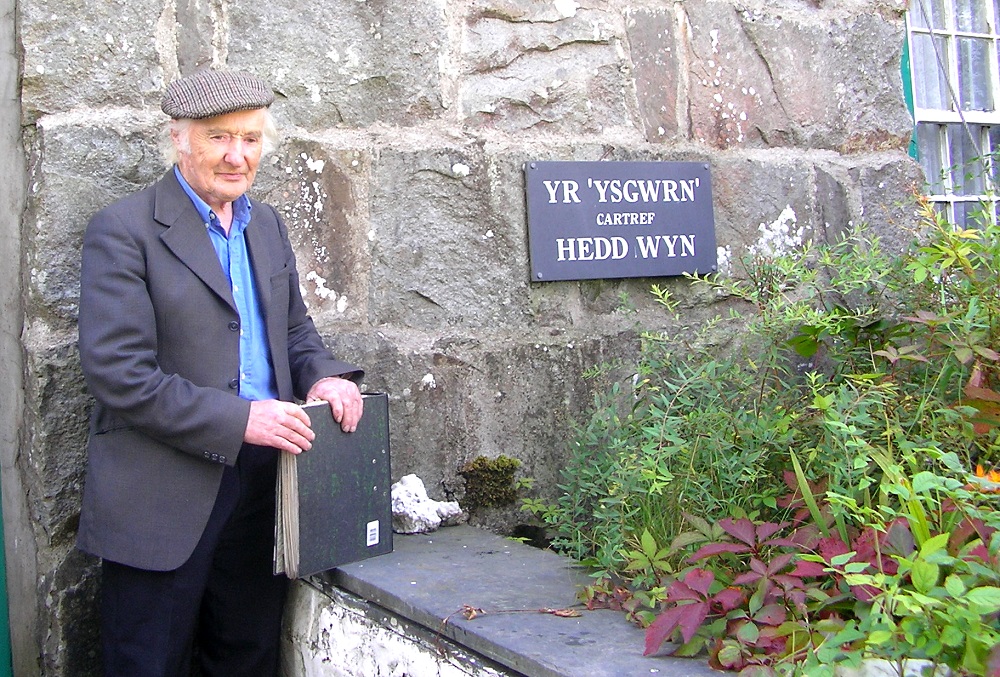
The property was preserved just as it was in 1917 by the poet’s family and his nephew Gerald Williams (d. 2021), who was the last of his relatives to live on the farm.
For years, Gerald and his brother Ellis continued to farm the land surrounding the farmhouse as custodians of both Yr Ysgwrn and Hedd Wyn’s legacy, welcoming visitors and working to ensure Hedd Wyn’s story lived on.
In 2012, fourteen years after Ellis’s death, Gerald decided it was time to pass on the custodianship of Yr Ysgwrn to the Eryri National Park Authority.
Watch
The BFI write: “Poetry was Ellis Evans’ passion – his life’s ambition to be chaired at a National Eisteddfod. He achieved this at the Birkenhead Eisteddfod of 1917.
“Unfortunately, he never knew of his success as he was fighting the Germans in the trenches of Ypres, where he died during his first day on the Western Front.
“The stirring biopic of the tragic hero features Huw Garmon in the title role. Written by Alan Llwyd and directed by Paul Turner, it was also the first Welsh-language film to be nominated for an Oscar.”
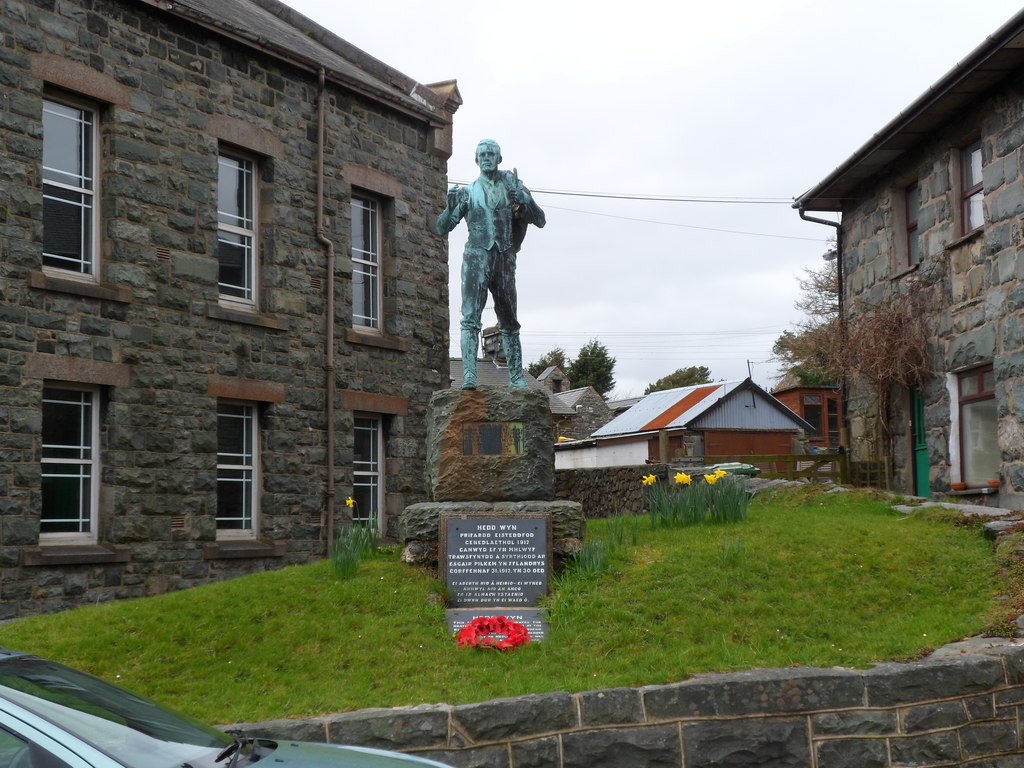
Available to watch with English subtitles, Hedd Wyn endures to this day, with a poignant marriage of the harrowing and the poetic.
A ‘show don’t tell’ film that bravely illustrates the impact of war, the ongoing legacy of England’s rule over Wales, and the incalculable loss to a community and land that just one man, let alone thousands, can have.
A lesson for our times that continues to go unheeded – with the innocent continuing to pay the ultimate price for the decisions of our poppy-emblazoned leaders.
Watch Hedd Wyn on BFI Player.
Support our Nation today
For the price of a cup of coffee a month you can help us create an independent, not-for-profit, national news service for the people of Wales, by the people of Wales.





